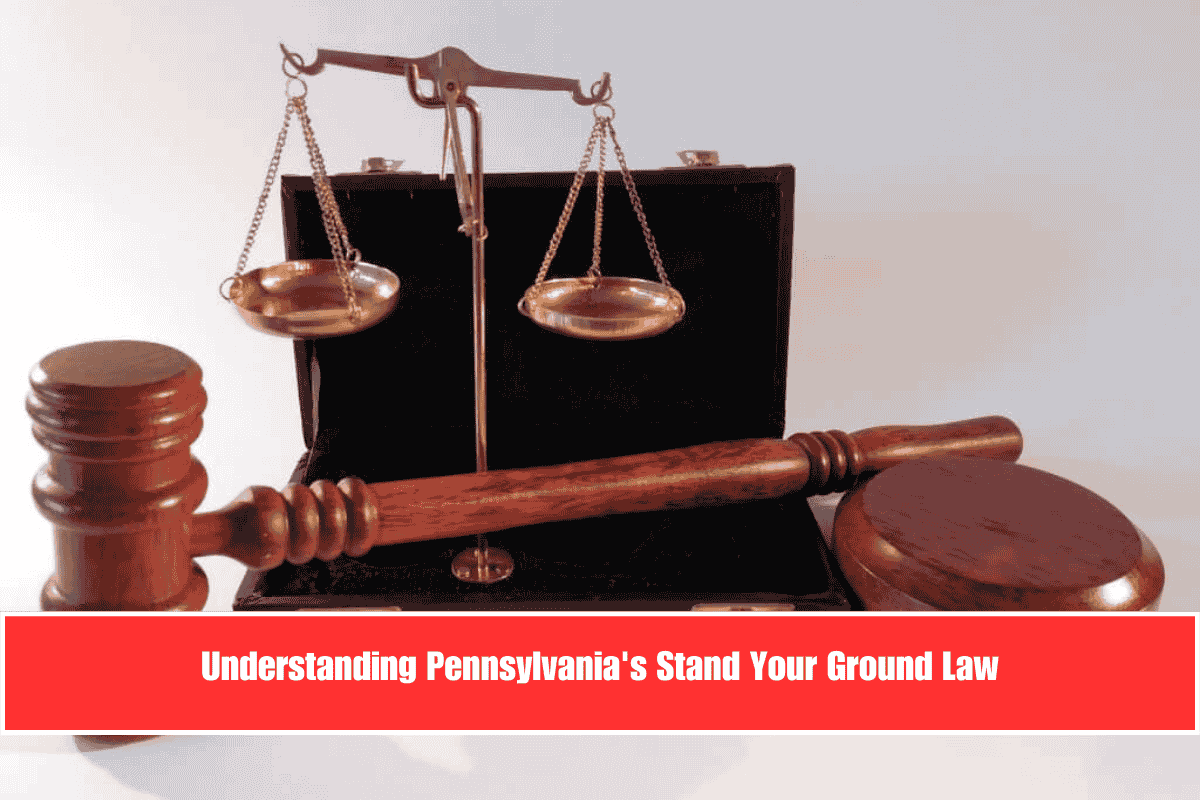Pennsylvania’s Stand Your Ground law allows individuals to use force, including deadly force, in self-defense without a duty to retreat, under specific circumstances. This law is codified in 18 Pa.C.S. § 505 and represents a significant shift from earlier requirements that mandated retreat, if possible, before using deadly force.
Key Provisions
When You Can Stand Your Ground:
- You are not engaged in criminal activity at the time of the incident.
- You are in a place where you have a legal right to be, such as your home, vehicle, or any public space.
- You reasonably believe that using force is immediately necessary to protect yourself from death, serious bodily injury, kidnapping, or sexual intercourse by force or threat.
- The person against whom you use force displays or uses a firearm or other deadly weapon.
Castle Doctrine:
- The law includes the “Castle Doctrine,” which removes the duty to retreat entirely when you are in your home or occupied vehicle. In these locations, you may use deadly force if someone unlawfully enters or attempts to enter.
Limitations and Requirements
- Proportionality: The force used must be proportional to the threat. Deadly force is only justified if you reasonably believe you are facing a threat of death, serious bodily injury, kidnapping, or sexual assault. For example, responding to a fistfight with a firearm is not justified.
- Weapon Display Requirement: Outside your home or vehicle, the law generally requires that the attacker display or use a firearm or other deadly weapon for you to lawfully use deadly force without retreating..
- No Duty to Retreat: If the above conditions are met, you have no duty to retreat before defending yourself, even in public spaces.
- Burden of Proof: The prosecution, not the defendant, must prove that the use of force was not justified, providing additional legal protection to those claiming self-defense.
Exceptions and When Stand Your Ground Does Not Apply
- You cannot claim self-defense if you are engaged in criminal activity or illegally possessing a firearm at the time of the incident.
- If you are the initial aggressor in the conflict, you lose the right to claim Stand Your Ground.
- The law does not justify the use of force to resist arrest by law enforcement, even if the arrest appears unlawful.
- If the threat ends (for example, the attacker flees), you cannot pursue and use force, nor can you use deadly force if it is no longer immediately necessary.
- In situations not covered by the statute (such as minor altercations or property disputes), you may still have a duty to retreat if you can do so safely.
Proposed Changes and Controversy
There have been legislative efforts to expand Pennsylvania’s Stand Your Ground law, such as removing the requirement that the assailant display a weapon and allowing deadly force based on perceived disparities in size or being outnumbered. These changes have not been enacted as of 2025 but remain a subject of significant debate due to concerns about potential misuse and increased violence.
Table: Key Elements
| Element | Requirement for Stand Your Ground Defense |
|---|---|
| Location | Must be lawfully present |
| Criminal Activity | Cannot be engaged in criminal activity |
| Threat Level | Death, serious injury, kidnapping, or rape |
| Attacker’s Weapon | Must display/use deadly weapon (outside home) |
| Duty to Retreat | No duty if above conditions are met |
| Proportionality | Force must match threat level |
Pennsylvania’s Stand Your Ground law provides robust protections for individuals who use force in self-defense, but it is not a blanket license for violence. The law is carefully structured with specific requirements and notable exceptions, and misuse can result in serious legal consequences. Anyone facing a self-defense situation should be aware of these details and, if necessary, consult legal counsel.
Sources
[1] https://www.legis.state.pa.us/WU01/LI/LI/CT/HTM/18/00.005.005.000..HTM
[2] https://www.ceasefirepa.org/our-work/ending-stand-your-ground/
[3] https://en.wikipedia.org/wiki/Stand-your-ground_law
[4] https://www.findlaw.com/state/pennsylvania-law/pennsylvania-self-defense-laws.html
[5] https://www.philadelphiacriminallawyers.com/how-does-pennsylvanias-stand-your-ground-law-work/














